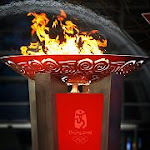
Hu comes to bury rancorous history
By David Pilling and Richard McGregor
Published: May 5 2008 17:32 | Last updated: May 5 2008 17:32
It has been 10 years since Jiang Zemin became the first Chinese head of state to visit Japan in China’s several-thousand-year history. The trip went badly.
Mr Jiang lectured the Japanese about their wartime atrocities and what he said was their lack of contrition, setting off a grim decade in Sino-Japan relations.
The low point came during the tenure of Junichiro Koizumi, Japan’s prime minister from 2001 to 2006, whose annual custom of visiting Tokyo’s Yasukuni shrine, which honours Japan’s war dead, so annoyed Beijing that top-level contacts were suspended almost entirely.
Jeff Kingston, professor of Asian studies at Tokyo’s Temple University, says the chill could not have come at a worse time as it coincided with a shift in Asia’s balance of power from a mature Japan to a rising China. Even though economic relations were deepening over the same period, Mr Kingston says that, at a political level, contacts were dangerously neglected.
Since then, both sides have rowed back from the brink and a five-day trip to Japan by Hu Jintao, China’s president, which begins on Tuesday, marks the culmination of 18 months of frantic fence-building.
In a sign of China’s new, conciliatory approach, Mr Hu gave an interview to 16 Japanese journalists at the weekend, the first time the low-profile leader, who tightly controls his public image, has granted foreign reporters such access.
During that meeting Mr Hu took a pragmatist’s view. “It is inevitable to have some problems and it is normal to have different views during the development of bilateral relations,” he was quoted as saying by Xinhua, China’s state news agency. “What’s more important is that the two sides should handle issues with a candid and sincere attitude.”
Trade quietly endures through the chill
Trade between the two Asian nations has grown steadily, in spite of tense political relations.
● Japan remains the biggest economic power in Asia, with a $4,300bn economy in 2006, against China’s $2,700bn, according to World Bank data.
● China replaced the US as Japan’s top trade partner in 2007, with two-way trade totalling $236.6bn, says the Japan External Trade Organisation (Jetro). Chinese customs authority data say Japan was China’s third biggest trade partner, behind the European Union and the US, last year. Japan’s foreign direct investment to China stood at $6.2bn last year, says Jetro. Traffic in the other direction is a comparatively new area of growth.
● China and Japan have a $6bn currency swap agreement, created to thwart speculative attacks on their currencies and prevent a repeat of the Asian financial crisis.
Sources: Reuters, Japan External Trade Organisation
The new mood began in the autumn of 2006, when Mr Hu seized on Mr Koizumi’s departure to mend bridges with Japan. He welcomed Shinzo Abe, Mr Koizumi’s successor, to Beijing with stirring talk of a new strategic partnership and a determination that gnawing points of history should not be allowed to wreck ties between Asia’s two economic powerhouses.
Mr Abe’s breakthrough visit was followed by a carefully stage-managed trip to Japan by Wen Jiabao in April 2007 in which a smiling Chinese premier stopped at nothing – he even played baseball – to woo the Japanese public. If anything, relations at a diplomatic – if not necessarily at a public – level have improved again since Yasuo Fukuda, a foreign policy dove, became prime minister last September. Mr Fukuda has pleased Beijing by pledging not to visit Yasukuni.
Jin Linbo, of the China Institute of International Studies in Beijing, says: “China wants to elevate the dialogue to a higher level – the political relationship is moving into a new phase.”
Gerry Curtis, professor of political science at Columbia University, says there will be no repeat of the Jiang fiasco with Mr Hu. “It will be a good news event,” he says. “Neither side will benefit from having a sour note sounded and the accent will be on the positive.”
Not that everything is perfect. After an apparent breakthrough during Mr Fukuda’s trip to Beijing in December, the two sides look no closer to settling a dispute over gas resources in the East China Sea.
The mood, at a popular level, was also soured when, in January, several Japanese fell ill after eating frozen gyoza dumplings made in China. The discovery of illegal pesticide in the packaging led to an initially promising joint investigation, but reached an impasse with each side blaming the other.
The already surly popular mood among Japan’s public – which mirrors the even more heated anti-Japanese sentiment in China – has not been helped by controversy over Tibet, although Tokyo has largely refrained from direct criticism of Beijing.
But “fortunately, these issues have not become obstacles to ties generally”, says Liu Jiangyong of the Institute of International Studies at Tsinghua University.Even in the absence of breakthroughs on substantial issues, the two sides will ensure the positive language continues and step up confidence-building exchanges of youth, as well as government and military officials.
Japan is hoping to win concessions from China on a post-Kyoto protocol, for which it insists China will need to make some cuts in carbon emissions. A Japanese foreign ministry official hinted that Mr Hu might make some gesture in that direction while in Tokyo.
Even if nothing much concrete is forthcoming, they can always fall back on panda diplomacy. Ling Ling, the only giant panda that belonged to Japan, last week died in Ueno Zoo. If Beijing is as serious as most believe about keeping relations sweet, it might not be long before another panda is on its way to Japan.
Copyright The Financial Times Limited 2008


No comments:
Post a Comment